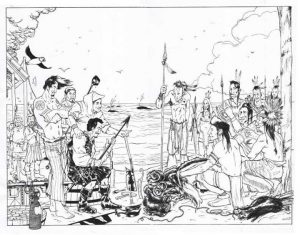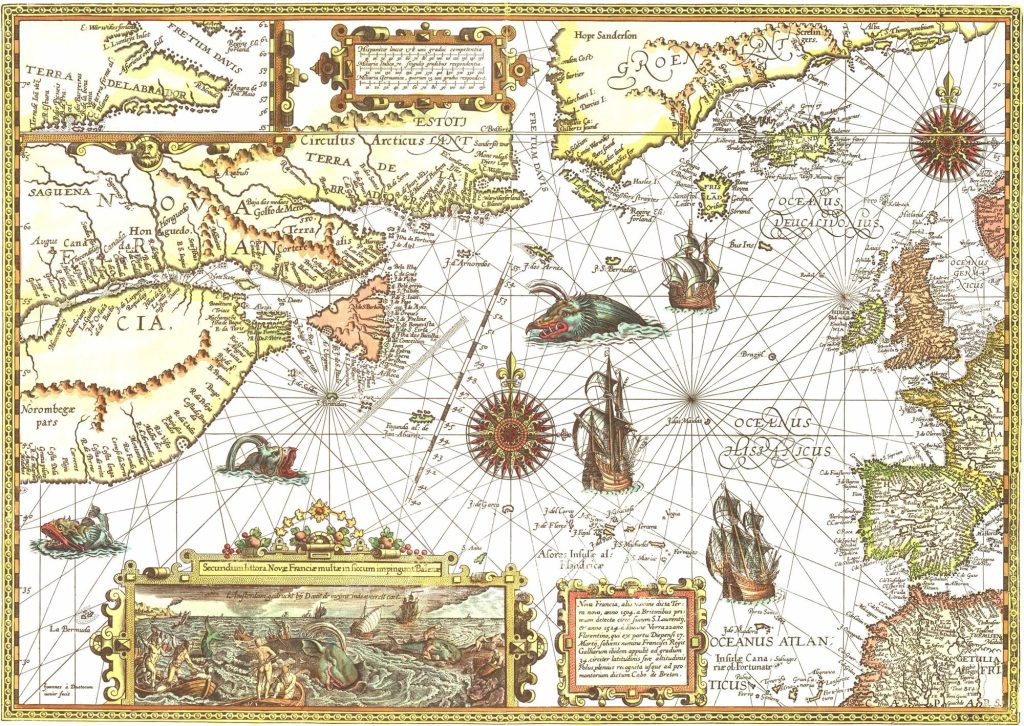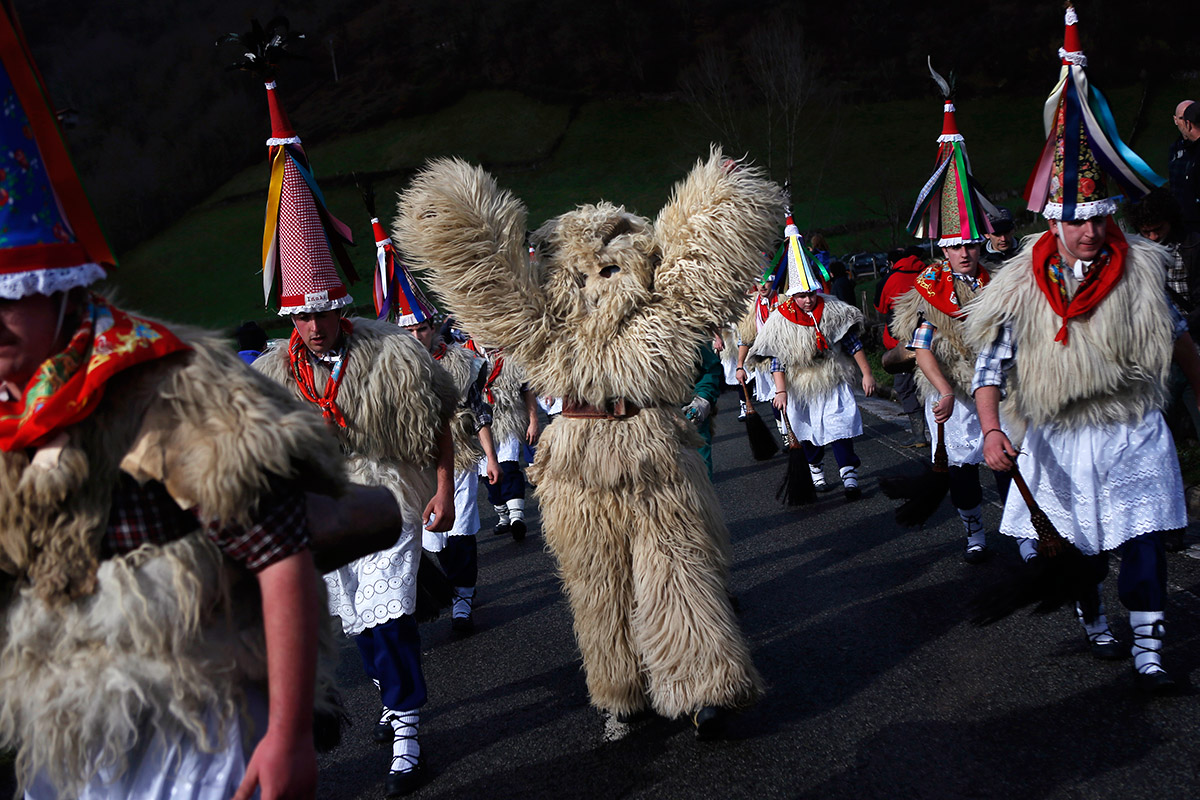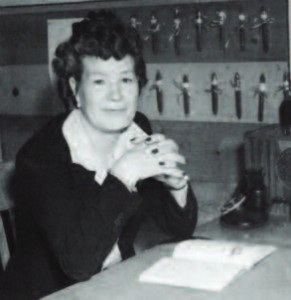I visited my dad a few weekends ago. On the way home after taking him to a doctor’s appointment, we decided to stop to visit a couple of friends. Old friends, friends that had come over, like my dad, from the old country, who, like him, had made their life off the land of the western US.
Our first stop was one I knew well. An old buddy of my dad’s, one that he still gets together with to make chorizo and play mus, as a dairy between Boise and Homedale. We pulled into his drive way and he came trudging out of the barn. He doesn’t have so many cows any more, but he still plugs away. He and dad chatted about lots of things — various people they knew, the changes in the dairy business since they were younger — while we all sipped on beer, wine, or diet coke.
We then moved on to our second stop. This friend had just harvested his grapes and was in his garage, getting things ready to make wine. He had big bags of walnuts too, collected from his trees. If I recall correctly, this old Basque had made his living in the mills near Boise. He and dad had grown up together in the Basque Country and their talk drifted towards the girls they knew back then (how different would life have been if my dad had settled with a girl in the old country).
While talking to these guys, or better said listening, as they would drift between English and Basque, with some Spanish cuss words thrown in for good measure (to break up the English cuss words), I couldn’t help but notice their hands. These are men who had used their hands as tools, just like I might use a hammer, it seemed. Their hands were massive, with large knots for knuckles. Finger nails were deformed, having been smashed multiple times during a life of hard manual labor. They reminded me of some old tree, a tree that has been hit by the multiple forces of nature and man, and while damaged and scarred, still stands tall. Hands with fingers that bend in ways that they didn’t when these men were children, like some twisted branches off of the trunk of a tree.
I couldn’t help but think of my Tio Joe, who simply has these massive hands. Hands that seem primal in form, the result of a lifetime of use. Not abuse, as they have been extremely productive, but they show the wear and tear of a life of hard work. The fingers don’t have the dexterity they were born with, but rather are almost lumpy appendages that seem to get in the way more than actually help.
Then, I look at my hands, hands that are soft in comparison. Hands that maybe have a scar or two, but are overall in good shape. When I compare my hands with their hands, I feel a twinge of guilt, born of a career spent at a computer, using my hands not to wield axes or buck bales of hay, but of typing and writing. These men have hands that were strong. They may not be now, but they had such strength in their prime.
But, then, I realize that this is the whole point. My dad left the Basque Country to find a better life, a life with opportunity, at least more opportunity than seemed possible at the time in Spain. All of these men did. They worked hard at what they knew best, using their hands, their shoulders, their backs to make the best life they could in a foreign land. They worked hard to make their life and the lives of their offspring the best they knew how. My dad worked so hard so that I wouldn’t, at least not that kind of work. I work hard in my own way, but it isn’t the back-breaking work my dad, or his friends, did.
Those hands, then, are part of the legacy of the ambition that brought these men to the US. Hands that the women who came also have, hands that suffered decades of abuse in the name of a better life. Hands that provided that life for countless sons and daughters.










 I went to Donostia as part of the University Studies Abroad Consortium, which had an intensive Basque language course for students with no knowledge of Basque. There were three of us — myself, a woman from Idaho who was trying to make the same connections to her heritage that I was, and a woman from England, who had no connection to anything Basque beyond an interest in the people and culture. Our teacher, Nekane, was an Euskaldun Berri, a new Basque speaker, who had learned Basque as an adult and decided to become part of the effort to ensure Euskara’s survival. She was an extremely pleasant and patient teacher, especially to a student of science like myself who questioned the why of everything, in particular the logic of the language (why this construct as opposed to this one). Little did I recognize, at the time, that my own language of English has so little logic behind it!
I went to Donostia as part of the University Studies Abroad Consortium, which had an intensive Basque language course for students with no knowledge of Basque. There were three of us — myself, a woman from Idaho who was trying to make the same connections to her heritage that I was, and a woman from England, who had no connection to anything Basque beyond an interest in the people and culture. Our teacher, Nekane, was an Euskaldun Berri, a new Basque speaker, who had learned Basque as an adult and decided to become part of the effort to ensure Euskara’s survival. She was an extremely pleasant and patient teacher, especially to a student of science like myself who questioned the why of everything, in particular the logic of the language (why this construct as opposed to this one). Little did I recognize, at the time, that my own language of English has so little logic behind it!
